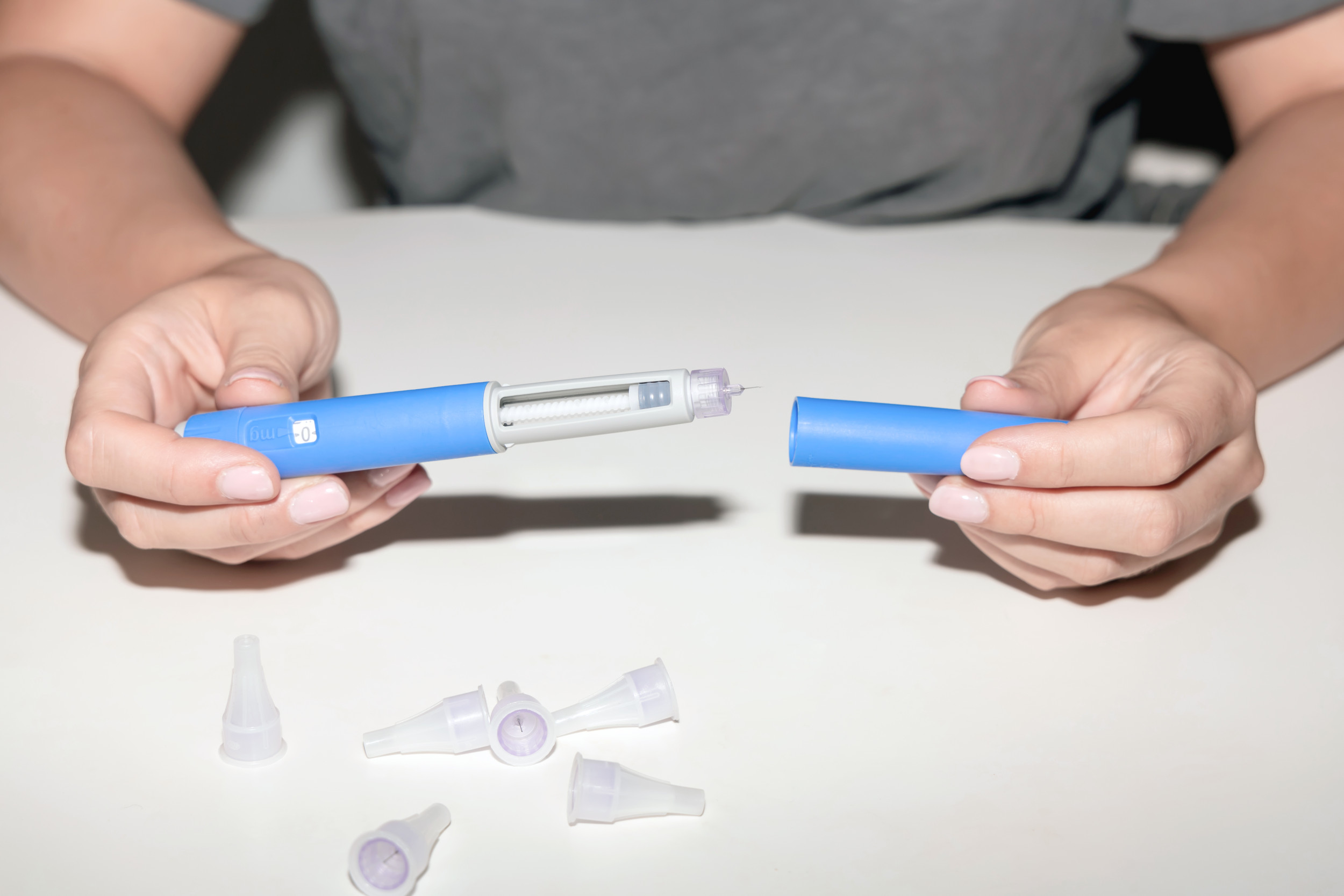[ad_1]
A survey of US adults found that 25 percent of respondents would consider using weight loss drugs such as Ozempic, Wegovy or Mounjaro without consulting their doctor first.
“A patient could have a serious or life-threatening side effect, such as severe dehydration, pancreatitis or an allergic reaction,” said Ohio State University internal medicine physician Dr. Shengyi Mao. Newsweek when asked about the worst-case scenario of taking these drugs without a prescription.
“While side effects can also occur for patients who are prescribed these medications, the prescriber is likely to examine the patients for the appropriateness of taking the medicine, and monitor the reactions and know how to deal with them.”
Weight loss drugs like Ozempic are glucagon-like peptide-1 (GLP-1) receptor analogs, developed to treat type 2 diabetes and obesity.
CR/Getty Images
They work by mimicking a fullness hormone called GLP-1: they support blood sugar control, slow down digestion, reduce appetite, and possibly increase metabolism.
“The main results of the survey are that a quarter of adults in the United States risk using injectable medications for weight loss without consulting a doctor, for reasons such as lower cost and lack of insurance Mao said.
The survey by the Ohio State University Wexner Medical Center included 1,006 respondents, all adults in the United States.
“Weight loss medications are not one size fits all and patients should always discuss options with a trusted medical professional first to avoid being exposed to potential health risks,” Mao said.
Side effects of GLP-1 analogs can include nausea, vomiting, constipation, diarrhea, bloating, and abdominal pain.
There have also been reports of mental health side effects, such as depression and suicidal thoughts, but this link has been disputed in recent research.
The US Food and Drug Administration (FDA) stated on its website: “Patients should only obtain drugs containing semaglutide (a form of GLP-1 analog) with a prescription from a healthcare provider licensed healthcare, and only obtain medications from licensed state pharmacies or FDA-registered outsourcing facilities.”
The researchers found that, of those who expressed a desire to access injectable weight loss drugs without consulting their doctor, 18 percent said they were motivated by lower costs.
“The survey shows that cost is the number one reason,” Mao said Newsweek. “Not everyone who gets these over-the-counter medicines should be on them, but many are qualified.
“Unfortunately, since medicines are not always covered by insurance even for FDA-approved indications, people are turning to other solutions.”
Another 15 percent said they used over-the-counter weight loss drugs because they were not covered by their insurance to receive this medication from their doctor.
Meanwhile, 9 percent said they could not get a prescription for such drugs, and 6 percent complained about a lack of availability through a pharmacy.
When weight-loss drugs are cheap — as they often are since they hit the market — pharmacies in the United States can compound, meaning they create custom alternatives to brand-name drugs to keep asking.
However, the FDA has warned that it has not reviewed the safety of compound drugs, and that it has received reports that these may be in forms that have not been approved by the FDA, in particular, with the salt of semaglutide.
It also said it is investigating reports of counterfeiting of Ozempic — a popular GLP-1 analog prescribed for type 2 diabetes — marketed in the United States.
“The FDA has issued warnings about adverse events from dose calculation errors from compounded medications, leading to higher-than-intended doses and even hospitalization in severe cases,” Mao said.
“There are a few contraindications for injectable weight loss medications that can be overlooked if patients receive these medications without a prescription,” he said. “Gastrointestinal side effects are quite common with injectable weight loss medicines and can be severe in some cases.
“Other concerns about getting these medicines without a prescription, including possible counterfeit medicines.”
Do you have a suggestion about a food story that Newsweek should i cover it? Is there a nutrition concern that worries you? Let us know via science@newsweek.com. We can ask the experts for advice, and your story could be featured Newsweek.

